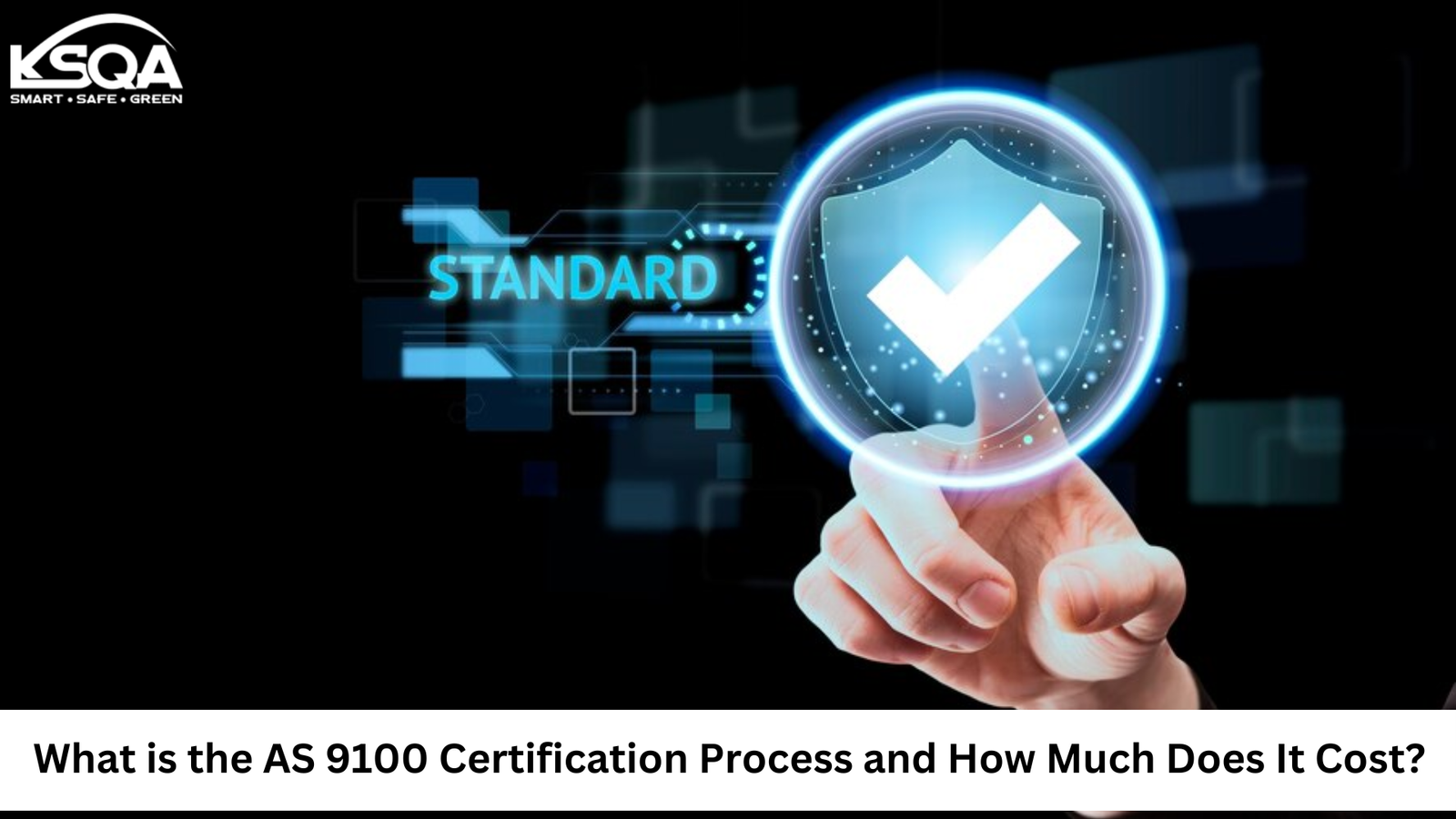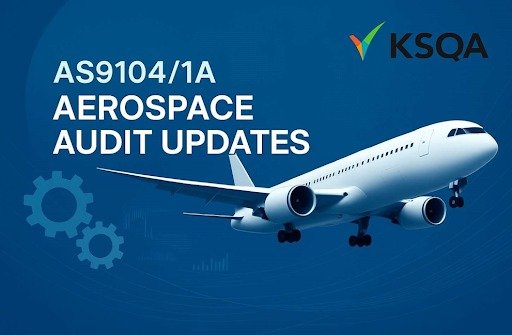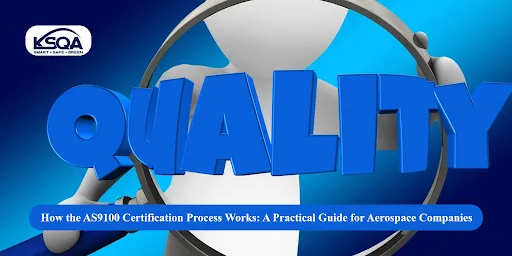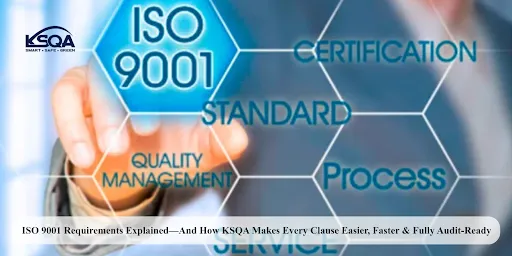These days many businesses have prioritized the assurance of product and service quality stands as a paramount factor. This is because many businesses want to gain their customers’ trust, increase their employees’ productivity, and increase their organization’s revenue.
ISO 9001 certification emerged as a pivotal instrument for small enterprises, showcasing a steadfast commitment to effective quality management and heightened customer satisfaction. Many businesses have understood the immense benefits that this certification brings to their organization.

Now it’s time for you to understand the importance of ISO 9001 certification and the process of how to get ISO 9001 certification in the USA for your organization as soon as possible.
In this blog, we will guide you through comprehensive details about the ISO 9001 certification along with the ISO 9001 certification process. So keep reading.
What is ISO 9001?
ISO 9001 is an international standard that sets the groundwork for a robust Quality Management System (QMS). In simple terms, it’s a set of guidelines outlining how businesses can ensure that their products and services consistently meet customer expectations.
Key Principles of ISO 9001
1. Customer Focus:
The primary focus is on meeting customer requirements and enhancing satisfaction, underscoring the importance of understanding and meeting client needs.
2. Leadership
Leaders at all levels within an organization play a crucial role in establishing unity of purpose and direction, creating an environment for employee engagement.
3. Involvement of People
Recognizing that an organization’s success hinges on the involvement of its people, ISO 9001 promotes a culture of collaboration and empowerment.
4. Process Approach
Emphasizing the significance of understanding and managing interrelated processes as a system contributes to the organization’s effectiveness and efficiency.
5. System Approach to Management
Identifying, comprehending, and overseeing interconnected processes collectively enhances the organization’s efficacy in accomplishing its goals.
6. Continuous Improvement
The principle of continuous improvement encourages organizations to regularly enhance their performance by addressing opportunities for improvement.
Benefits of ISO 9001 Certification
Improved Efficiency: Streamlining processes leads to increased efficiency, reducing waste and boosting productivity.
1. Enhanced Customer Satisfaction
By consistently delivering products and services that meet customer expectations, satisfaction is heightened, fostering loyalty.
2. Global Recognition
ISO 9001 certification provides international recognition, facilitating access to global markets and demonstrating commitment to quality.
3. Increased Credibility
Customers and stakeholders gain confidence in the organization’s ability to deliver quality, enhancing its reputation.
4. Legal and Regulatory Compliance
Ensuring adherence to applicable laws and regulations safeguards the organization from legal issues and penalties.
ISO 9001 Certification Process in the USA
Written below is the step-by-step process of how to get iso 9001 certification in USA for your organization;
1. Initial Planning
The certification journey starts with initial planning, where the organization assesses the need for ISO 9001 certification. This phase involves identifying key stakeholders, understanding the scope of the certification, and establishing a preliminary roadmap for the process.
2. Gap Analysis
Once the initial plan is in place, a thorough gap analysis is conducted. This step involves evaluating existing processes against ISO 9001 requirements, pinpointing areas that need improvement, and identifying any gaps between current practices and the standard’s expectations.
3. Documentation
With insights gained from the gap analysis, the organization proceeds to document its Quality Management System (QMS). This includes creating policies, procedures, and other necessary documentation to align with ISO 9001 standards. Clear and accessible documentation is a cornerstone for successful certification.
4. Training and Awareness
Ensuring everyone in the organization is on the same page is crucial. The training and awareness phase involves educating employees about ISO 9001 requirements, the importance of the QMS, and how their roles contribute to the overall success of the certification process.
5. Implementation
Implementation marks the rollout of changes based on the established QMS. This phase involves integrating new processes, updating existing ones, and ensuring that everyone is following the documented procedures. The focus is on embedding a culture of quality within the organization.
6. Internal Audits
Internal audits are conducted to evaluate the effectiveness of the implemented QMS. This involves independent reviews to identify strengths and weaknesses, ensuring that the organization is on the right track before the external audit.
7. Management Review
Management plays a critical role in overseeing the QMS. The management review phase involves top-level assessments of the QMS’s performance, effectiveness, and areas for improvement. It reinforces leadership commitment and ensures ongoing alignment with organizational goals.
8. External Audit
The final step of the certification process involves an external audit by a reputable certification body. The external auditors assess the organization’s QMS against ISO 9001 standards, verifying compliance and issuing the coveted ISO 9001 certification upon successful completion. This certification serves as a formal acknowledgment of the organization’s commitment to quality management.
ISO Certification Cost for Small Businesses in the USA
The cost of obtaining ISO 9001 certification for small businesses in the USA will be approximately $2,000 to $4,000. However, it can vary based on several factors.
1. Size and Complexity of the Organization
The size and complexity of a small business play a pivotal role in determining the ISO 9001 certification cost. Larger businesses with more intricate operations may face higher costs due to the extensive effort required to implement and manage a Quality Management System (QMS) that aligns with ISO standards.
On the other hand, smaller businesses with simpler structures may find the process more streamlined, potentially resulting in lower certification costs.
2. Industry-Specific Requirements
The industry in which a small business operates is a significant factor influencing certification costs. Certain industries have specific regulatory requirements or necessitate more stringent adherence to quality standards.
Businesses operating in sectors with complex processes or dealing with critical products, such as healthcare or aerospace, might experience higher certification costs compared to less complex industries.
3. External Support and Consultation
The extent of external support required can significantly impact certification costs. Small businesses may choose to engage consultants or hire dedicated personnel to guide them through the certification process. While this incurs additional expenses, the guidance can speed up the process and enhance the likelihood of successful certification.
4. Level of Existing Documentation and Quality Practices
The level of existing documentation and adherence to quality practices within the organization is a key determinant of certification costs. Businesses with well-established quality processes may find the certification process more straightforward and cost-effective.
On the other hand, businesses starting from scratch may incur higher costs in creating and implementing the necessary documentation required for ISO certification.
Conclusion
The journey of getting ISO certification for small businesses in the USA is both a commitment and an investment in quality management. In this blog, the significance of such a commitment becomes even more apparent. Small businesses are encouraged to seize the opportunity to navigate the ISO 9001 certification journey.
As they embark on this journey, they embark on a path toward excellence, setting the stage for sustained growth and credibility in the global marketplace.
KSQA is a leading provider of virtual auditing services for those who are seeking to get their organization an ISO 9001 or AS9100 certification. We are dedicated to making the AS9100 & ISO 9001 certification cost & process more affordable and accessible for small companies. Contact us today to learn more about our services.




.jpg)
.jpg)

